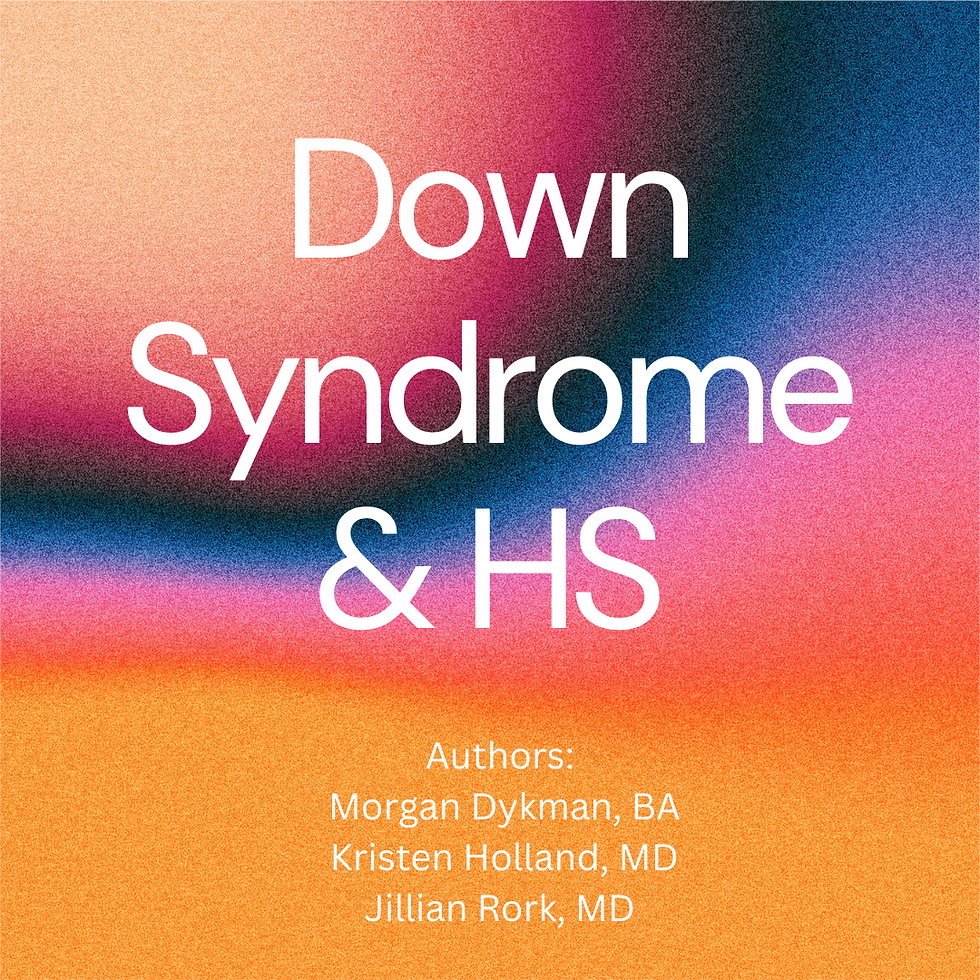Are Our Abscesses Always Infected?
- Denise Fixsen

- Nov 13, 2020
- 3 min read
Updated: Feb 26, 2022
You would think that this would be a simple answer, but as we all know, nothing is simple with HS!
The short answer to this question is: No.
An HS wound or abscess does not always contain harmful bacteria or infection.
Redness and swelling are not always a sign of infection and are very common due to inflammation with HS abscesses. Please see the cellulitis article here.
HS is not an infectious disease.
Not all bacteria(s) cause infection. Bacteria that can cause infections are typically called "pathogenic bacteria". Both non-pathogenic and pathogenic bacteria have been found in HS lesions.
If an abscess is cultured harmful bacteria may or may not be found; there may be several types of normal skin bacteria present, as well as pathogenic (potential infection causing) bacteria (using typical culture tests or less advanced techniques).
Pathogenic bacteria can be present in any abscess or wound, but that does NOT necessarily mean you have an active infection. The presence of "bad" or harmful bacteria can put you at higher risk of developing an infection. In these cases, proper wound care can help prevent possible infection. Depending on the situation, a short course of antibiotics may be prescribed as a preventive measure.
There is always some type of bacteria and organisms present on our skin.
Cultures
Any wound may become infected with a variety of bacteria. A culture helps to determine the following:
Whether a wound has become infected
Which type(s) of bacteria are causing the infection
If applicable, which antibiotic would best treat the infection and help heal the wound
Testing/culturing to separate the various types of bacteria and identifying the pathogenic bacteria requires one or more days.
When normal or harmless bacteria is found the culture would show as negative for staphylococci, micrococcaceae, corynebacteria, etc.
More Advanced Testing
When more advanced testing, such as genome sequencing and or 16S rRNA sequencing test (less advanced), are used they may reveal a complex array of microbial communities possibly identifying many “hidden” microorganisms not identified by typical culture methods. These types of cultures may not be covered by insurance and usually a regular culture would have to be done first before the more advanced cultures would be carried out.
Certain inflammatory skin diseases can have bacteriologically sterile pustules and that cause tissue destruction and abscess formations in the absence of pathogens (infectious microbes), which include:
Hidradenitis Suppurativa
Acne conglobata and acne fulminans
Crohn’s disease
Panniculitis (inflamed subcutaneous fat)
A few things that increase the risk of infected abscesses for HS patients:
Picking at or squeezing abscesses
Self lancing, using needles, squeezing
Not keeping an abscess area properly cleaned (especially after it's recently drained)
Sometimes abscesses become infected without any of the above occurring. The most common infection that can occur with our wounds or abscesses is cellulitis. Short-term antibiotics are usually given when an infection is present.
There are some HS sufferers who deal with chronic infections such as staph, MRSA, etc., both with their HS abscesses and in other areas of the body unrelated to their HS. Their cultures will most likely always have some type of bacteria present including harmful bacteria, even with antibiotic use.
Some HS sufferers have chronic bacteria show up in cultures (not necessarily indicative of infection), as well as biofilm, which is proving antibiotic-resistant.
Any type of wound, HS or otherwise, can become infected. It is important to pay attention to your body and the way your abscesses act so you can identify if an abscess could potentially be infected. Our Wound Care guide can be found here.
A good wound care regimen may help when it comes to reducing the risk of infection. This includes not overusing antibacterial products which also kill good bacteria on the skin.
hsconnect.org
Content in this article is not intended to be a substitute for professional medical advice, diagnosis, or treatment. Always seek the advice of your physician or other qualified health provider with any questions you may have regarding a medical condition. Never disregard professional medical advice or delay seeking treatment because of something you have read on this website.
Written by Denise Fixsen
Edited by Brindley Brooks



